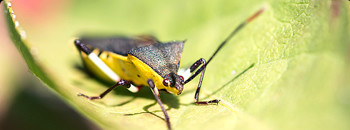
The common house fly thrives nearly everywhere in the U.S. no matter what the season. As the most prevalent type of fly in the world, the common house fly accounts for more than 90 percent of the fly population. Although most regard them as harmless and mere nuisances, it turns out that flies have the potential to be real health hazards. Did you know the common house fly also can harbor some pretty nasty diseases? Read more and find out.
House flies are annoying but ultimately harmless pests. True or False?
False. House flies can threaten your health in many ways because they are known to transfer disease in the places they land. Flies may carry more than 100 types of pathogens, including Salmonella, Mycobacterium tuberculosis (tuberculosis), and the eggs of parasitic worms, e.g., hookworm, Ascaris, and whipworm.
House flies are attracted to warm, moist surfaces. House flies’ short lifespan is offset by their high reproduction rates. An adult female can lay up to 150 eggs at once, and she can produce eggs several times per week. On average, flies live about one month, though they may live longer inside climate-controlled spaces.
Most fly problems can be tackled by addressing indoor conditions. True or false?
True. When it comes to dealing with house flies, prevention is key. Think about it: house flies love gross, germy areas (garbage and waste products, etc). So make a point of keeping your home clean with the following tips:
- Seal up and put away leftover food
- Take out the trash regularly
- Clean up any standing water, especially in bathrooms
- Use flypaper or ultraviolet lights to trap or kill the flies
- Ensure window and door screens are secure and in good condition
- Keep garbage containers secured as they are the preferred places for flies to lay eggs
If problems persist, visit your local home improvement store or your local farm and ranch store to purchase solutions to rid the flies in your home.

